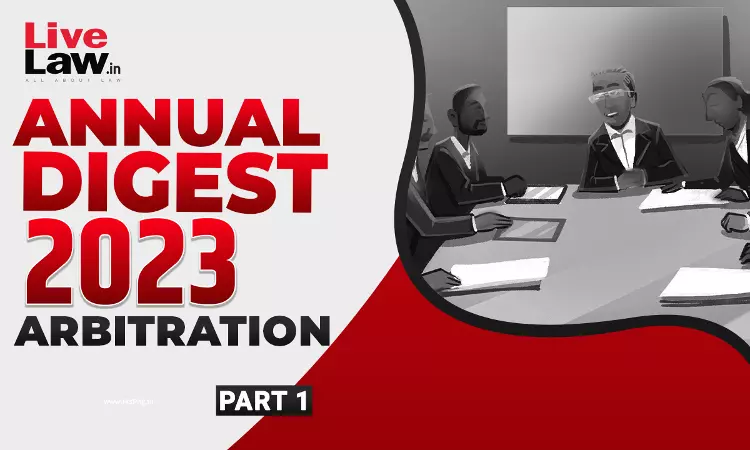Annual Digest of Arbitration Cases 2023- Supreme Court And High Courts (Part-1)
ausaf ayyub
7 Jan 2024 10:39 AM IST

Next Story
7 Jan 2024 10:39 AM IST
Supreme Court Arbitration Clauses In Unstamped Agreements Enforceable : Supreme Court 7-Judge Bench Overrules 'NN Global' Decision Case Title: In Re Interplay Between Arbitration Agreements Under The Arbitration And Conciliation Act 1996 And The Indian Stamp Act 1899 Curative Pet(C) No. 44/2023 In R.P.(C) No. 704/2021 In C.A. No. 1599/2020 Citation: 2023 LiveLaw...
